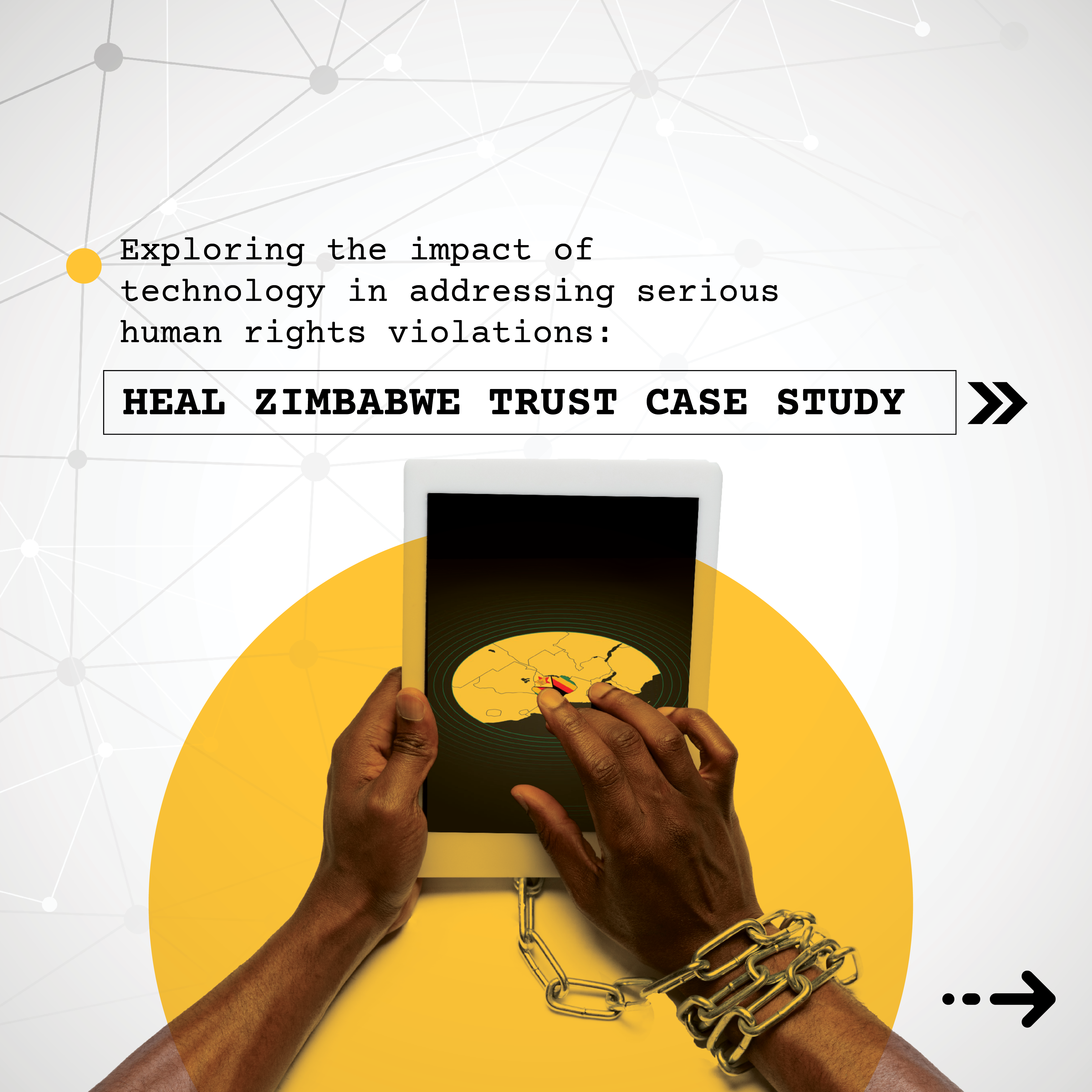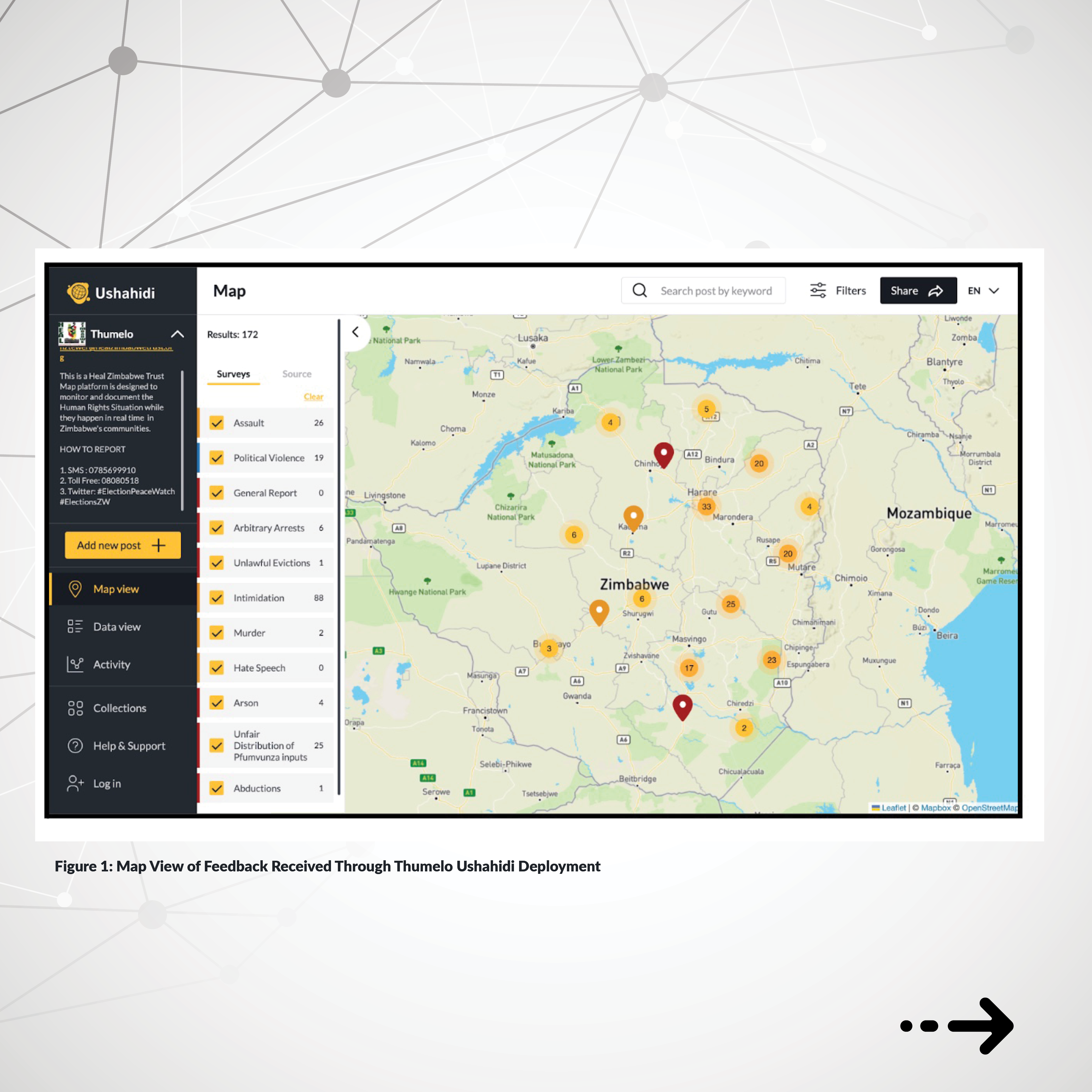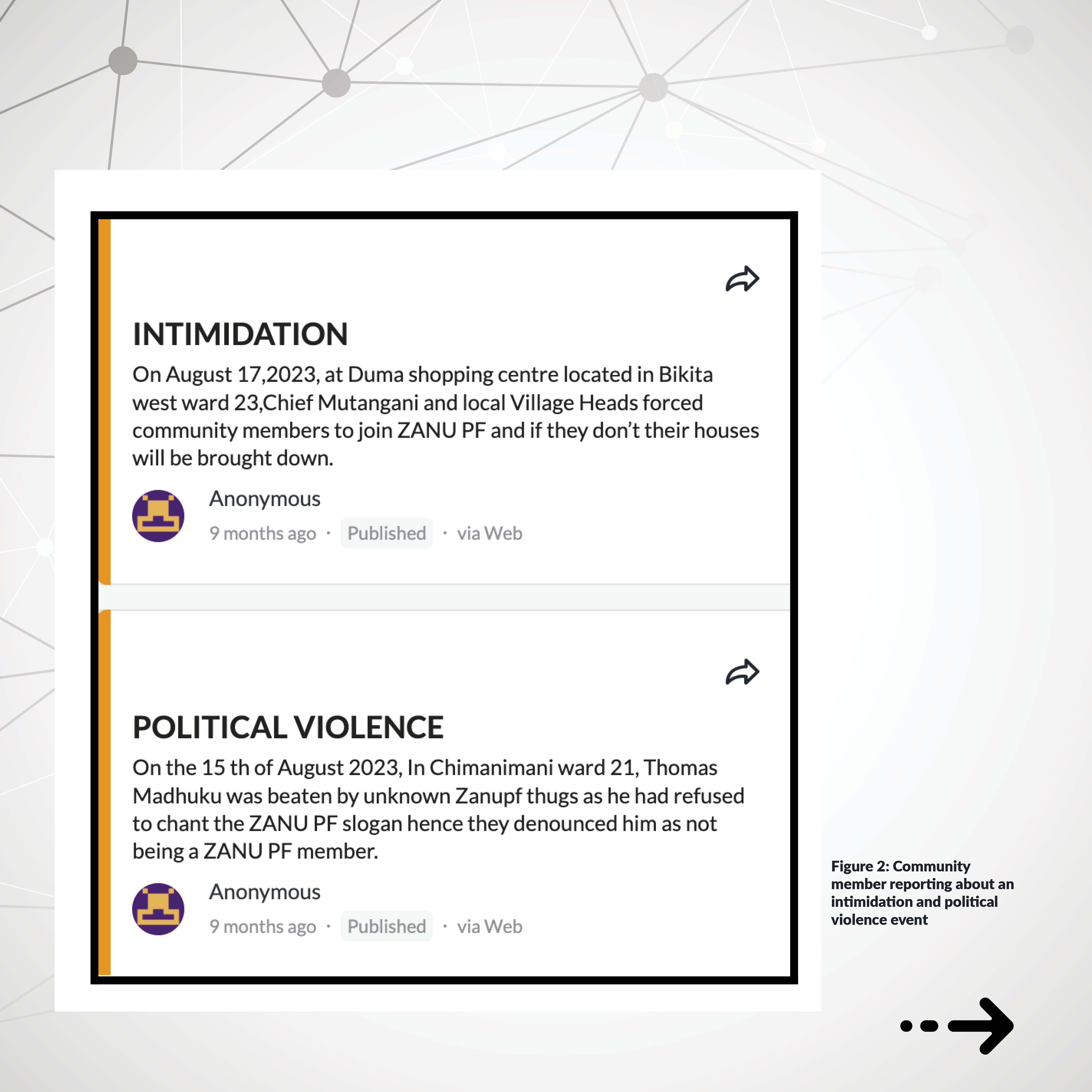
Exploring the Impact of Technology in Addressing Serious Human Rights Violations
Heal Zimbabwe Trust Case Study

During the Zimbabwe election and beyond, Heal Zimbabwe Trust (HZT), a non-profit peacebuilding organization, used the Ushahidi platform to help citizens report human rights violations anonymously. Ushahidi’s geo-tagging, crowd mapping, and anonymous reporting features were essential for documenting these violations.
Elections worldwide often bring about a clash of promises and emotions, with anxiety over outcomes following closely. With the rise in authoritarianism globally, democracy seems to be under threat from reactionary movements and ideologies that weaken political systems. Human rights activists try to protect human rights at various stages and levels, using different strategies based on their objectives. Zimbabwe is no exception. During its 2023 election, there was a significant public outcry over human rights violations by the government.
According to a post-election report by Amnesty International:
“The rights to freedom of expression, association, and peaceful assembly were severely restricted, particularly during the election period. Opposition members, or those associated with the opposition, bore the brunt of the wide scale repression of dissent, including arbitrary detention and prosecution. New legislation imposed further restrictions on and harsh penalties against activists and critics. Plain-clothes state agents abducted political activists, tortured them, and killed one man. At least one activist was reportedly killed by ruling party supporters. The authorities took measures to control the spread of a cholera outbreak, which killed at least 100 people and affected thousands more. Women and girls were denied their right to sexual and reproductive health. New legislation went some way to addressing children’s need for protection.”
Utilization of Ushahidi’s Technology Tools:
During the Zimbabwe election and beyond, Heal Zimbabwe Trust (HZT), a non-profit peacebuilding organization, used the Ushahidi platform to help citizens report human rights violations anonymously. Ushahidi’s geo-tagging, crowd mapping, and anonymous reporting features were essential for documenting these violations.
Heal Zimbabwe used SMS, Twitter, and the Web as reporting channels:
- SMS: Enabled 2-way communication with community members without smartphones or in areas with low internet access. This zero-cost service ensured users didn't face charges, removing barriers to using the platform and making use of familiar low-tech solutions.
- Twitter: Facilitated social listening by tracking posts with hashtags #ElectionPeaceWatch and #ElectionsZW, integrating them into their Ushahidi deployment.
The deployment collected 172 reports from across Zimbabwe, with most reports from Harare and nearby areas:
Assault: 26
Political Violence: 19
Arbitrary Arrests: 6
Unlawful Evictions: 1
Intimidation: 88
Murder: 2
Arson: 4
Unfair Distribution of Pfumvunza inputs: 25
Abductions: 1


Outcomes and Way Forward:
Heal Zimbabwe’s Thumelo project showed how technology could be used to report human rights violations effectively. Traditional reporting methods can be challenging for citizens, especially when government officials and powerful individuals take political sides, leading to fear of reprisal. The Ushahidi platform countered these challenges effectively.
Key benefits of the platform:
- Anonymous Reporting: Allowed marginalized and vulnerable groups to report violations without fear of discrimination or victimization.
- Near Real-Time Reporting: Enabled quicker responses from the organization, crucial in preventing further abuse and providing immediate assistance to victims.
- Increased Accountability: The possibility of anonymous reporting pressured authorities and organizations to act more transparently and responsibly.
In summary, anonymous reporting platforms are vital in the fight against human rights violations. They offer protection, encourage reporting, and provide valuable data for advocacy and policy-making. For more details, interact with the deployment at https://hztewer.ushahidi.io/map
Reference:
- https://www.icj.org/zimbabwe-serious-human-rights-violations-call-into-question-the-legitimacy-and-credibility-of-the-zimbabwe-election-results/
- https://www.amnesty.org/en/location/africa/southern-africa/zimbabwe/report-zimbabwe/#:~:text=Zimbabwe%202023,including%20arbitrary%20detention%20and%20prosecution.
26
Assaults
19
Political violence
6
Arbitrary Arrests
1
Unlawful evictions
88
Intimidation
2
Murder
4
Arson
25
Unfair Distribution of Pfumvunza inputs:
1
Abductions
Published Evidence
- Heal Zimbabwe Deployment
Ushahidi Platform
- ICJ Reporting
The ICJ
- Coverage of the events
Amnesty International